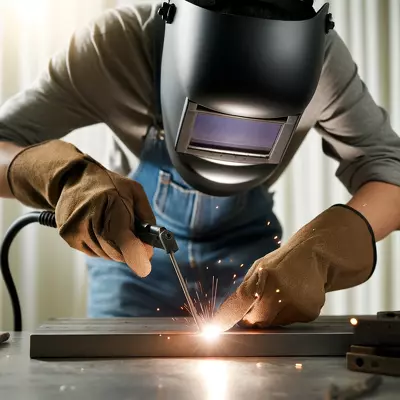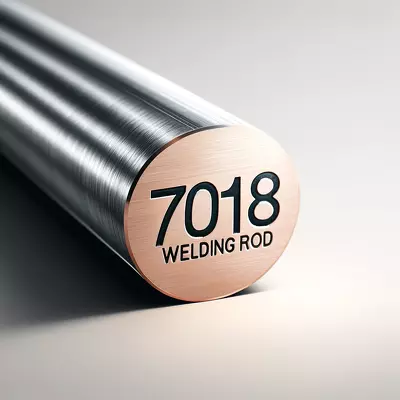Elite Best Welding Jobs in America: Where to Find Them & Why They Pay More
Welding is a skilled trade that offers numerous career opportunities across America. The best welding jobs provide not only competitive salaries but also long-term job security and the potential for advancement. These positions are spread across various industries, including automotive, aerospace, and construction, catering to different interests and skill levels. For those considering a career in this field, understanding where the top opportunities lie is essential.
I. Overview of Top Welding Careers in the USA
A. Importance of Welding in Various Industries
Welding is integral to the foundation of modern infrastructure and manufacturing. From constructing skyscrapers to assembling cars, welding’s role is pivotal across many sectors. This indispensable skill ensures the durability and safety of structures and vehicles, making it a cornerstone of industrial success.
B. Key Benefits of Pursuing a Welding Career
Welding careers offer robust salaries, comprehensive benefits, and substantial job security. The demand for skilled welders continues to outpace the supply, creating ample opportunities for employment and career advancement. Additionally, the diversity in the field allows welders to work in various settings, from outdoor construction sites to high-tech aerospace facilities.
C. Geographic Distribution of Premier Welding Positions
The most lucrative welding jobs are often found in regions known for manufacturing and construction. States like Texas, California, and Pennsylvania are hotspots for high-paying welding positions due to their extensive industrial activities. Urban areas, where large construction projects are common, also tend to offer more opportunities and higher wages.
II. Exploring High-Paying Welding Opportunities
A. Welding Jobs in the Aerospace Industry
Aerospace welders play a crucial role in assembling aircraft, spacecraft, and satellites. These professionals work with high-strength materials under precise conditions to ensure the integrity of critical flight components. The aerospace industry not only offers excellent wages but also a chance to engage in cutting-edge technology and innovation.
B. Opportunities in the Automotive Sector
Automotive welders specialize in vehicle fabrication and repair. This sector requires proficiency in various welding techniques to work with different materials, including aluminum and steel. The evolution of automotive technology also opens doors to working with electric and hybrid vehicles, expanding the scope of career options in this field.
C. The Role of Welders in Marine Construction
Marine construction welders are essential for building and maintaining ships, submarines, and other marine structures. These positions often involve working in challenging environments and require a high level of skill and precision. Marine welding not only pays well but also offers a unique and rewarding work setting.
III. Required Skills and Certifications for Elite Welding Roles
A. Essential Skills for Advanced Welding Positions
Advanced welding roles demand a mastery of various welding techniques, including MIG, TIG, and stick welding. Proficiency in reading blueprints and understanding metallurgical properties is also critical. These skills ensure that projects are completed to the highest standards of safety and quality.
B. Certification Processes
Certifications are crucial in the welding industry as they validate the skill level and expertise of a welder. Various institutions offer certification programs that provide specialized training in different types of welding. Employers often require these credentials, which can significantly enhance job prospects and credibility.
C. Continuing Education and Skill Advancement in Welding
Continuing education is vital for career growth in welding. Many welders attend workshops and courses to stay updated with the latest technologies and methods. Advancing their skills allows welders to tackle more complex projects and move into higher-paying positions.
IV. Work Environment and Job Satisfaction
A. Day-to-Day Responsibilities of Elite Welders
Elite welders handle complex welding tasks that require high precision and expertise. Their daily responsibilities can vary greatly depending on the industry but generally include preparing materials, executing detailed welds, and inspecting completed joints to ensure they meet all applicable standards.
B. Challenges Faced by Professional Welders
Despite the rewarding nature of the job, welding can be physically demanding and sometimes hazardous. Working with intense heat and powerful machinery poses risks, although strict safety protocols are in place to minimize accidents. Professional welders must also cope with the physical strain of wearing heavy protective gear and potentially working in uncomfortable positions.
C. Job Satisfaction and Career Longevity
Most welders find great satisfaction in their careers, driven by the tangible results of their work and the critical nature of their contributions to various industries. The opportunity to work on diverse projects and the continuous learning curve also contribute to high job satisfaction and career longevity in the field.
V. FAQs
Q: What are the typical entry-level positions for welders?
A: Entry-level welding positions often include roles as apprentice welders, where newcomers learn the trade under the supervision of experienced professionals.
Q: Is certification necessary for all welding jobs?
A: While not all welding jobs require certification, having certified skills significantly improves employment prospects and potential earnings.
Q: What is the average salary for a welder in the USA?
A: Salaries can vary widely, but skilled welders can expect to earn from $40,000 to over $70,000 annually, depending on their level of expertise and the industry.
Q: Are there opportunities for welders to work abroad?
A: Yes, skilled welders have opportunities to work on international projects, especially in industries like oil and gas or maritime construction.
Q: How long does it take to become a certified welder?
A: Certification programs can range from several weeks to a few months, depending on the level of specialization and the type of welding.
Q: What are the best industries for welders seeking high salaries?
A: The aerospace, automotive, and marine construction industries are known for offering some of the highest salaries in the welding field.
Q: Can welders advance to supervisory or managerial roles?
A: Yes, with experience and additional training, welders can move into supervisory or managerial positions, overseeing projects and other welders.
VI. Conclusion
Welding is a dynamic and vital profession that offers a range of lucrative and satisfying career paths. With the right training and credentials, welders can secure premium positions that promise not only good pay but also a sense of accomplishment and professional growth. As industries continue to evolve, the demand for skilled welders is expected to remain strong, making it an excellent career choice for those interested in a hands-on, rewarding job.
VII. Suggested Readings
Before diving into these suggested readings, it’s important to acknowledge the wealth of knowledge they contain for anyone aspiring to or currently navigating the welding profession. These books provide insights into techniques, career paths, and advancements in welding technology.
- “Welding: Principles and Applications” by Larry Jeffus – A comprehensive guide covering fundamental and advanced welding techniques.
- “Modern Welding Technology” by Howard B. Cary – This book explores the latest technologies and methods in the field.
- “The Welder’s Handbook: A Guide to Plasma Cutting, Oxyacetylene, ARC, MIG, and TIG Welding” by Richard Finch – An essential manual for practical welding applications.
- “Metallurgy and Welding Processes” by David J. Eyres – Delving into the scientific aspects of welding and the properties of metals.
After exploring these readings, one can appreciate the depth and breadth of the welding field. These resources are invaluable for both novice and experienced welders looking to enhance their skills and understanding of the craft.






